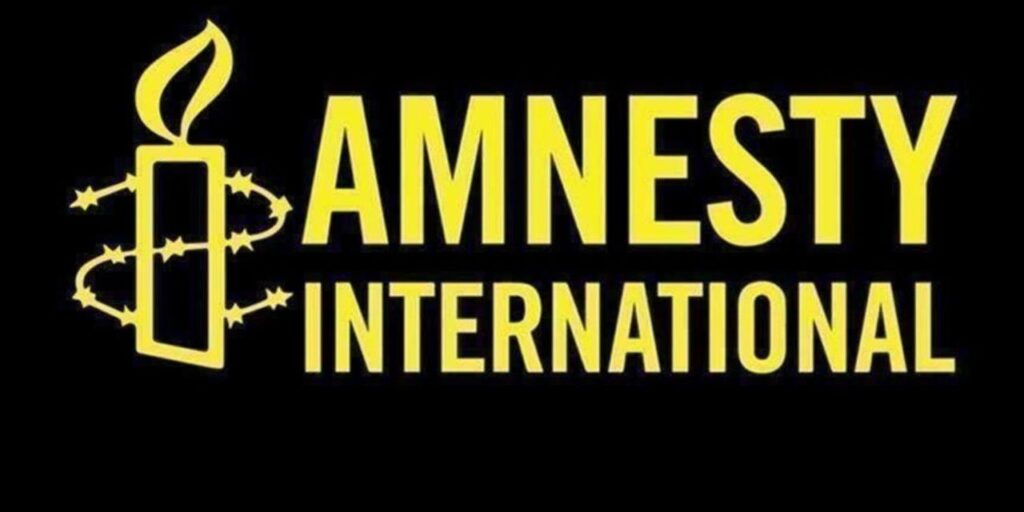
Amnesty International has sounded the alarm over a deepening humanitarian emergency in Benue State, North Central Nigeria, where ongoing attacks by armed groups have forced more than half a million people from their homes.
In a press release issued Thursday, the global human rights organisation revealed that at least 510,182 people are now internally displaced across the state, following years of relentless violence. The latest of these brutal assaults occurred on June 14 in Yelewata, where over 100 people were reportedly killed, leaving behind mass graves, spent bullet shells, and the stench of decomposing bodies.
The attack on Yelewata alone displaced 3,941 residents, many of whom have since taken refuge in overcrowded camps with little to no access to clean water, food, sanitation, or healthcare.
“The Nigerian authorities have failed the people of Benue state again and again,” said Isa Sanusi, Director of Amnesty International Nigeria.
“Rampant attacks by gunmen have deprived thousands of their rights to life, liberty, safety, and livelihoods. Survivors are trapped in squalid, unhygienic camps where disease spreads easily, and access to food or clean water is scarce.”
Amnesty researchers visited some of the most affected areas—Gwer West, Agatu, Ukum, Kwande, Logo, Guma, and Makurdi—including a makeshift displacement camp located at Makurdi Modern Market. Their findings paint a grim picture of neglect and systemic abandonment. According to the report, security forces often arrive hours or days after attacks, leaving vulnerable communities defenceless.
The violence, Amnesty says, follows a disturbing pattern. Armed groups typically launch nighttime raids, shooting victims indiscriminately and, in many cases, using machetes and knives to inflict gruesome injuries, including hand amputations.
By the end of 2024, 500,182 individuals were already displaced. Since January 2025, over 10,000 more have fled attacks in areas like Gwer West, Agatu, Ukum (Gbagir), Kwande (Anwase), Logo, and Guma (Yelewata, Agan, and Gbajimba).
The situation in internally displaced persons (IDP) camps is deteriorating rapidly. Amnesty describes living conditions as appalling, with many IDPs exposed to disease, harsh weather, and the threat of gender-based violence.
“If we don’t get drugs, we just sit and watch the sick person helplessly,” one displaced person told Amnesty investigators.
Healthcare and education have all but collapsed. In one camp, a makeshift school has been closed for more than three years due to the government’s inability to pay teachers. Children have been out of school, and pregnant women face dangerous conditions due to poor hygiene and limited medical attention.
“Our children no longer go to school and there are no arrangements by the authorities to teach children in the IDP camp,” said another IDP.
“The government should end the insecurity in our local government and state. Until then, provide us with food and proper shelter.”
Amnesty also highlighted the growing problem of family separation during displacement. Several mothers shared heartbreaking accounts of being separated from their children during the chaos of fleeing attacks.
“When we arrived, they [my children] left. I don’t know where they have gone. I can’t speak with them; I don’t have a phone,” said one mother, adding she had eight children, most of whom are now missing.
Amnesty is urging the Nigerian government to urgently implement the African Union’s Kampala Convention on the protection and assistance of internally displaced persons. The organisation stressed the need for urgent aid, including food, shelter, water, sanitation, healthcare, and protection for displaced populations.
“The situation risks spiraling into a full-blown humanitarian disaster,” said Sanusi.
“The persistent failure to hold perpetrators accountable is emboldening attackers and spreading fear. Authorities must end this culture of impunity and provide victims with relief and compensation.”
Amnesty International has been tracking the Benue crisis since 2016, documenting a long history of violent clashes—especially between herders and farmers—and systemic government inaction. Nigeria, the group emphasized, has binding obligations under international law to safeguard the rights of displaced citizens to housing, food, education, and medical care.
As displaced families continue to suffer in silence, the world watches—and the sick, too often, are left to die.